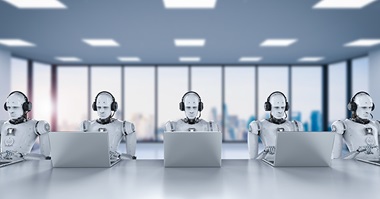Date Published March 17, 2023 - Last Updated February 20, 2024
 The pace of technological advancement is rapidly transforming the world, and the IT industry is not immune to this change. With the introduction of artificial intelligence (AI) and machine learning, various industries are experiencing significant disruptions. This has led to debates about how automation will impact IT jobs. While some experts suggest that automation will enhance the efficiency of IT jobs, others express concerns that it could lead to significant job losses.
The pace of technological advancement is rapidly transforming the world, and the IT industry is not immune to this change. With the introduction of artificial intelligence (AI) and machine learning, various industries are experiencing significant disruptions. This has led to debates about how automation will impact IT jobs. While some experts suggest that automation will enhance the efficiency of IT jobs, others express concerns that it could lead to significant job losses.
The truth is that automation is already transforming the IT industry, and its impact will only increase in the coming years. In this article, we will explore the rise of the machines and the potential impact on IT jobs.
Automation is already making many IT jobs more efficient. Tasks that were once done manually are now being automated, freeing up time for IT professionals to focus on more strategic tasks. For example, automation is being used to manage networks, perform security checks, and even analyze data. These tasks can be done faster and more accurately by machines, freeing up IT professionals to focus on tasks that require human intelligence and creativity.
Many fear that machines will take over tasks that were previously done by humans, leading to a reduction in the number of IT jobs available. While it is true that some jobs may be automated, it is important to remember that automation will also create new jobs that require skills in areas such as AI, machine learning, and robotics. In addition, IT professionals will be needed to manage the machines that are performing the automated tasks.
In the future, IT professionals will need to develop new skills to stay relevant in a world where automation is increasingly prevalent. They will need to learn how to manage and work alongside machines, and develop skills in areas such as AI, machine learning, and data analytics. The IT industry is also likely to see an increase in demand for jobs that require human creativity and problem-solving skills.
In the constantly evolving IT industry, reskilling is crucial for IT professionals to remain relevant and excel in their careers. The ability to adapt to the changing landscape will differentiate successful IT professionals from others. For instance, there will be a significant demand for IT professionals with skills in AI and machine learning, as these technologies become more mainstream in the industry.
Employers play a crucial role in reskilling their workforce, as well. They can offer training and development opportunities to help their employees acquire new skills and stay up to date with the latest technologies. By investing in their workforce, employers can ensure they have a skilled and adaptable workforce that can navigate the challenges of automation and technological disruption.
Jeff Rumburg is the Managing Partner and co-founder of MetricNet, LLC. MetricNet is the leading source of benchmarks and metrics for IT service and support professionals worldwide. For more information, please go to www.metricnet.com.